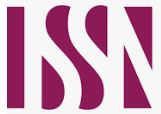الانفعالات الاكاديمية وعلاقتها بالاحتراق النفسي لدى طلبة الجامعة (دراسة نفسية مقارنة)
الكلمات المفتاحية:
الاحتراق النفسي، طلبة الجامعة، العراق، الكويتالملخص
استهدف البحث قياس مستوى الانفعالات الاكاديمية لدى طلبة الجامعة وقياس مستوى الاحتراق النفسي لدى طلبة الجامعة وتعرف الفروق لدى المتغيرين تبعاً للجنس (الذكور – الاناث) والدولة (العراق – الكويت) ومدى الاسهام الانفعالات الاكاديمية مع الاحتراق النفسي للعينة الموسومة طلبة الجامعة وبلغ عدد الطلبة 700 طالب وطالبة وأظهرت النتائج الإحصائية أن طلبة الجامعة لديهم مستوى منخفض من الاحتراق النفسي والبالغة (18%) من مجمع عينة البحث أعلى من نسبة الذين لديهم مستوى مرتفع والبالغ (15%)، وأشارت النتائج ليس هناك فروق تبع لمتغير الجنس للانفعالات الاكاديمية، وليس هناك فروق تبع لمتغير الجنس للاحتراق النفسي، وأشارت النتائج هناك فرق لصالح العراق تبعاً للانفعالات الاكاديمية، وليس هناك فروق تبعاً للدولة للاحتراق النفسي، وخرج البحث بعدد من التوصيات والمقترحات.
المراجع
- البرق، عباس نظير وآخرون (2013): دليل المبتدئين في استعمال التحليل الإحصائي باستعمال برنامج (AMOS)، اثراء للنشر والتوزيع، الاردن.
- الدراجي، حسن علي سيد والعطراني، سعد سابط، وفليح، أشرف موفق (2023): علم النفس الشخصية في المنظور الاكلينكي، العراق، دار ودق للطباعة والنشر، ط 1.
- الشيخلي، اسيل عبد الحميد (2021): تحليل المسار للعلاقات بين الاندماج الأكاديمي والانفعالات الاكاديمية والسيطرة الاكاديمية المدركة وتنظيم الذات لدى طلبة الجامعة، أطروحة دكتوراه عير منشورة، الجامعة المستنصرية- كلية التربية.
- الزهراني، نوال بنت عثمان، (2008) الاحتراق النفسي وعلاقته ببعض سمات الشخصية لدى العاملات مع ذوي الاحتياجات الخاصة، رسالة ماجستير غير منشورة في الارشاد النفسي، السعودية جامعة ام القرى، كلية التربية.
- حسانين، السيد الشبراوي وإبراهيم، احمد عبد الفتاح (2017): الاحتراق النفسي لدى طلاب الجامعة بمصر والكويت فس ضوء الجنسية والنوع والتخصص الدراسي. مجلة الارشاد النفسي، العدد (51) ج 2 ص.ص. (2- 41).
- علام، صلاح الدين محمود (2000) القياس والتقويم التربوي والنفسي ـ أساسياته وتطبيقاته وتوجيهاته المعاصرة، دار الفكر العربي، القاهرة.
- عودة ، احمد سلمان ، والخليلي ، خليل يوسف (1998) : الاحصاء للباحث الاجتماعي في التربية والعلوم الانسانية. مكتبة الفكر، عمان.
- Anstasi, A (1976) Psychology testing. 4th. Ed, Macmillan company, New York.
- Lindquist, E.F (1951). Educational Measurement. American councilor Education, Washington.
- Linnenbrink-Garcia, L., & Pekrun, R. (2011). Students’ emotions and academic engagement: Introduction to special issue. Contemporary Educational Psychology, 36 (1), 1–3.
- Parker, P. C., & Stephens, E. J. (2012). Academic emotions. In APA educational psychology handbook, Vol 2: Individual differences and cultural and contextual factors. (pp. 3-31). American Psychological Association.
- -------------, Perry, R. P., Chipperfield, J. G., Hamm, J. M., & Pekrun, R. (2018). An attribution-based motivation treatment for low control students who are bored in online learning environments. Motivation Science, 4(2), 177.
- -------------, & Linnenbrink-Garcia, L. (2012). Academic emotions and student engagement. In S. L. Christenson, A. L. Reschly, & C. Wylie (Eds.), Handbook of research on student engagement (pp. 259–282). Springer Science + Business Media. https://doi.org/10.1007/978-1-4614-2018-7_12
- -------------, Frenzel, A. C., Goetz, T., & Perry, R. P. (2007). The control-value theory of achievement emotions: An integrative approach to emotions in education. In Emotion in education (pp. 13-36). Academic Press.
- Pekrun, R. (2006). The Control-value theory of achievement emotions: Assumptions, corollaries, and implications for educational research and practice. Educational Psychology Review, 18, 315-341.
- Pekrun, R., Goetz, T., & Perry, R. P. (2005). Academic Emotions Questionnaire (AEQ): User’s manual. Munich, Germany: University of Munich, Department of Psychology.
- -------------; Elliot, A. J., & Maier, M. A. (2006). Achievement goals and discrete Emotions: A theoretical model and prospective test. Journal of Educational Psychology, 98, 583–597.
- -------------; Frenzel, A.; Goetz, T., &Perry, R. (2007). The Control-Value Theory of Achievement Emotions: An Integrative approach to emotions in education. In P. Schutz, &R. Pekrun (Eds.), Emotion in Education (pp.13-36). San Diego: Academic Press.
- -------------,; Goetz, T.; Frenzel, A.; Barchfeld, P., & Perry, R. (2011). Measuring emotions in students’ learning and performance: The Achievement Emotions Questionnaire (AEQ). Contemporary Educational Psychology, 36, 36–48.
- -------------, T.; Titz, W., & Perry, R. P. (2002). Academic emotions in students’ self-regulated learning and achievement: A program of qualitative and quantitative research. Educational Psychologist, 37, 91-106.
- Perry, Hladkyj, S., Pekrun, R. H., & Pelletier, S. T. (2001). Academic control and action control in the achievement of college students: A longitudinal field study. Journal of educational psychology, 93(4), 776.
- Putwain, D. W., Becker, S., Symes, W., & Pekrun, R. (2018). Reciprocal relations between students’ academic enjoyment, boredom, and achievement over time. Learning and Instruction, 54, 73-81.
- Respondek, L., Seufert, T., Stupnisky, R., & Nett, U. E. (2017). Perceived academic control and academic emotions predict undergraduate university student success: Examining effects on dropout intention and achievement. Frontiers in psychology, 8, 243.








